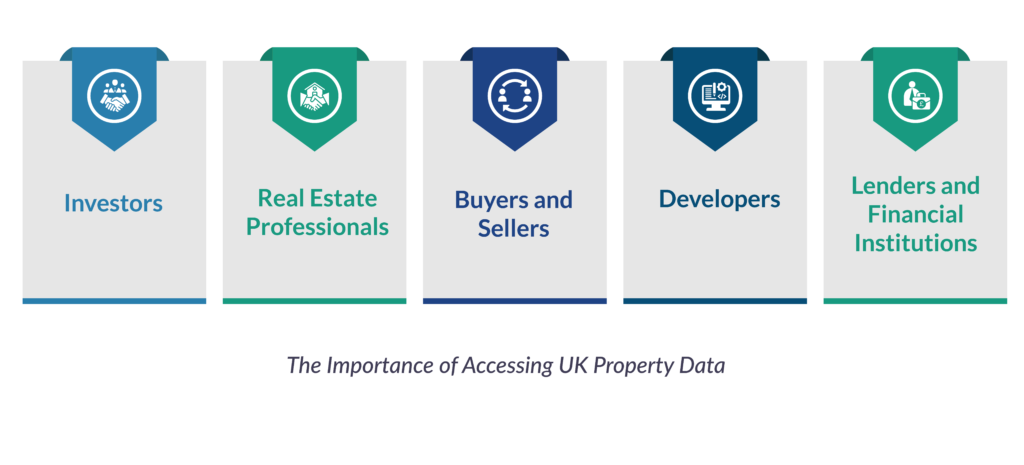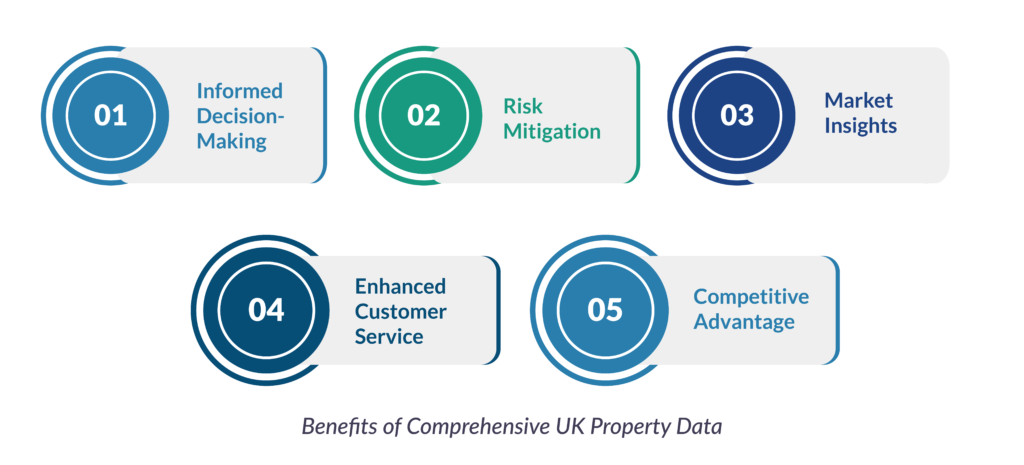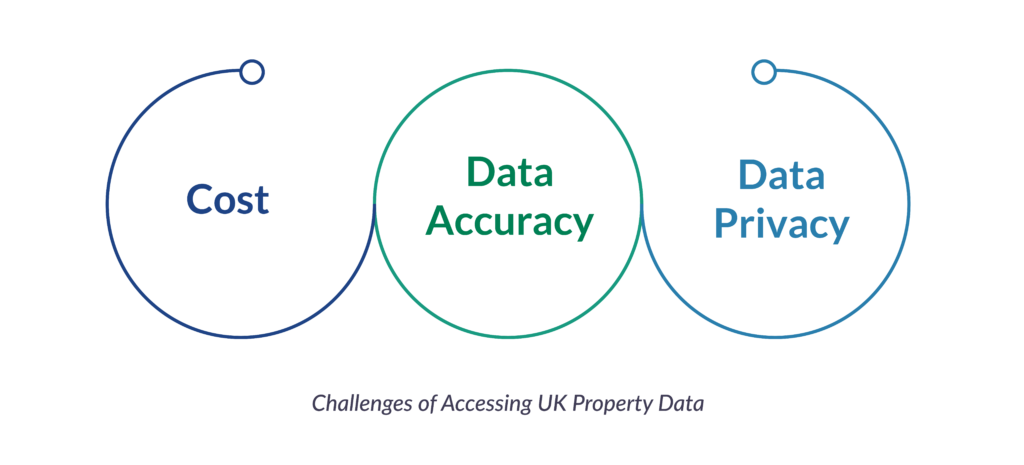The UK’s property market is dynamic and complex, with various variables influencing decisions for buyers, sellers, investors, and real estate professionals. Access to comprehensive and accurate UK property data is one of the most valuable assets in navigating this market.
Whether you’re an investor seeking lucrative opportunities or a business aiming to serve your customers better, understanding and utilising UK property data can significantly enhance your decision-making process.
What Is Property Data in the UK?
Property data encompasses a broad spectrum of information related to real estate. In the UK, this includes data on property ownership, transaction history, property valuations, land registry records, planning permissions, geographic information, energy performance certificates (EPCs), and much more. UK property data provides a 360-degree view of any property, helping you understand its history, current status, and future potential.
This data is collected from various public and private sources, including the UK Land Registry, local councils, and specialised property data providers. The key is not just accessing this data but also knowing how to use it effectively to inform your real estate decisions.
The Importance of Accessing UK Property Data
Access to detailed UK property data is vital for a range of stakeholders within the property market:

- Investors: Those looking to invest in the UK property market need access to up-to-date and accurate data to make informed investment decisions. Investors can identify opportunities and mitigate risks by analysing property values, historical price trends, and local market conditions.
- Real Estate Professionals: Agents, brokers, and other real estate professionals rely on property data to advise clients accurately. Whether determining a fair market price for a property or understanding local demand trends, access to comprehensive data enables professionals to offer valuable insights.
- Buyers and Sellers: Property data empowers buyers and sellers to make well-informed decisions. Buyers can use the data to assess a property’s true value and ensure they’re making a sound investment, while sellers can use it to price their property competitively.
- Developers: Understanding planning permissions, land ownership, and local property trends is crucial for property developers. Access to detailed UK property data ensures developers can confidently plan projects and align them with market demands.
- Lenders and Financial Institutions: Financial institutions use property data to assess the risk associated with mortgage lending. Lenders can make more accurate decisions when approving loans by evaluating the property’s value and market trends.
Where to Access UK Property Data
There are multiple sources through which you can access property data in the UK:
UK Land Registry:- This is the primary property ownership and transaction data source. It provides information on property titles, ownership changes, and legal documents related to properties across the UK.
Local Councils: Local authorities maintain data on planning permissions, property taxes, and other regulations that may impact a property. This data is crucial for understanding the legal framework surrounding a property.
Private Data Providers: Several private companies aggregate property data from various sources, offering more detailed insights and analysis. These services often include advanced tools for data visualisation, trend analysis, and forecasting, providing a more comprehensive view of the property market.
Energy Performance Certificates (EPCs): EPCs provide information on a property’s energy efficiency and environmental impact, which is increasingly important for buyers and investors concerned with sustainability.
Property Surveys: For more detailed information, property surveys can provide data on building specifications, land use, and potential issues such as structural problems or environmental concerns. Surveyors collect this data through physical inspections and assessments.
Benefits of Comprehensive UK Property Data
Accessing and leveraging UK property data offers numerous benefits:

- Informed Decision-Making: With comprehensive data, you can make decisions based on facts rather than assumptions. This leads to better outcomes, whether you’re buying, selling, investing, or developing property.
- Risk Mitigation: Understanding potential risks, such as flood zones, historical disputes, or planning restrictions, can help you make decisions that protect your investments.
- Market Insights: Property data provides valuable insights into market trends, helping you identify emerging opportunities and avoid potential pitfalls.
- Enhanced Customer Service: For businesses and real estate professionals, access to property data allows you to provide clients with accurate, data-driven advice, which builds trust and strengthens relationships.
- Competitive Advantage: In a competitive market, having access to detailed property data can give you an edge over others. Whether finding a hidden gem or pricing a property just right, data-driven decisions are often the most successful.
Challenges of Accessing UK Property Data
While accessing UK property data is highly beneficial, there are some challenges to be aware of:

1. Cost
Accessing certain property data, especially through the Land Registry or professional surveyors, may be expensive. Budgeting for this expense is essential, particularly for investors and developers.
2. Data Accuracy
Not all property data is accurate or up-to-date. To ensure its reliability, verifying the information you obtain and cross-referencing it with multiple sources is crucial.
3. Data Privacy
In the UK, data privacy laws are stringent. When accessing and using property data, it’s essential to comply with these regulations to protect individuals’ privacy and avoid legal issues.
The Future of Property Data in the UK
The future of property data in the UK is bright, with technological advancements leading the way. Here are some trends to watch for:
1. Big Data and Analytics
Big data and advanced analytics revolutionise how property data is collected and used. These technologies allow for more detailed insights and predictive modelling, helping investors and developers make even more intelligent decisions.
2. Increased Transparency
As property data becomes more accessible, transparency in the UK property market will increase. This will lead to more informed buyers and sellers, reducing the risk of fraud and ensuring fair transactions.
3. Integration with AI
Artificial intelligence (AI) is being integrated with property data platforms to provide even more sophisticated tools for analysis. AI can identify patterns, predict market trends, and offer personalised recommendations based on individual preferences and goals.
Conclusion
Property data in the UK is a powerful tool that can transform how you approach the real estate market. From investors and developers to buyers, sellers, and real estate professionals, everyone can benefit from access to comprehensive UK property data. By using this information, you can make more informed decisions, reduce risks, and ultimately achieve better outcomes in the property market.
To stay ahead in the UK property market, access the property data you need to make smarter, more informed decisions. In today’s data-driven world, having the correct information at your fingertips is critical to success.
Other Articles
